Using Digital Assistants to Improve Your Sleep: Tips & Tricks
30 January 2025
Who doesn't love a good night's sleep? It recharges your body, sharpens your mind, and sets the tone for the entire day. But, let’s be real—getting that solid 7-8 hours of sleep can sometimes feel like chasing a unicorn. Between work stress, screen time, and life in general, sleep often becomes elusive. Here's the good news: you don’t have to tackle it alone. Thanks to modern technology, digital assistants like Amazon Alexa, Google Assistant, and Apple’s Siri have become more than just tools for setting reminders or playing music. They can actually help you improve your sleep.
In this guide, we’ll explore how you can use digital assistants to get better sleep. From setting the right environment to integrating sleep-focused apps, you’ll find practical tips and tricks to turn your digital assistant into your very own sleep coach.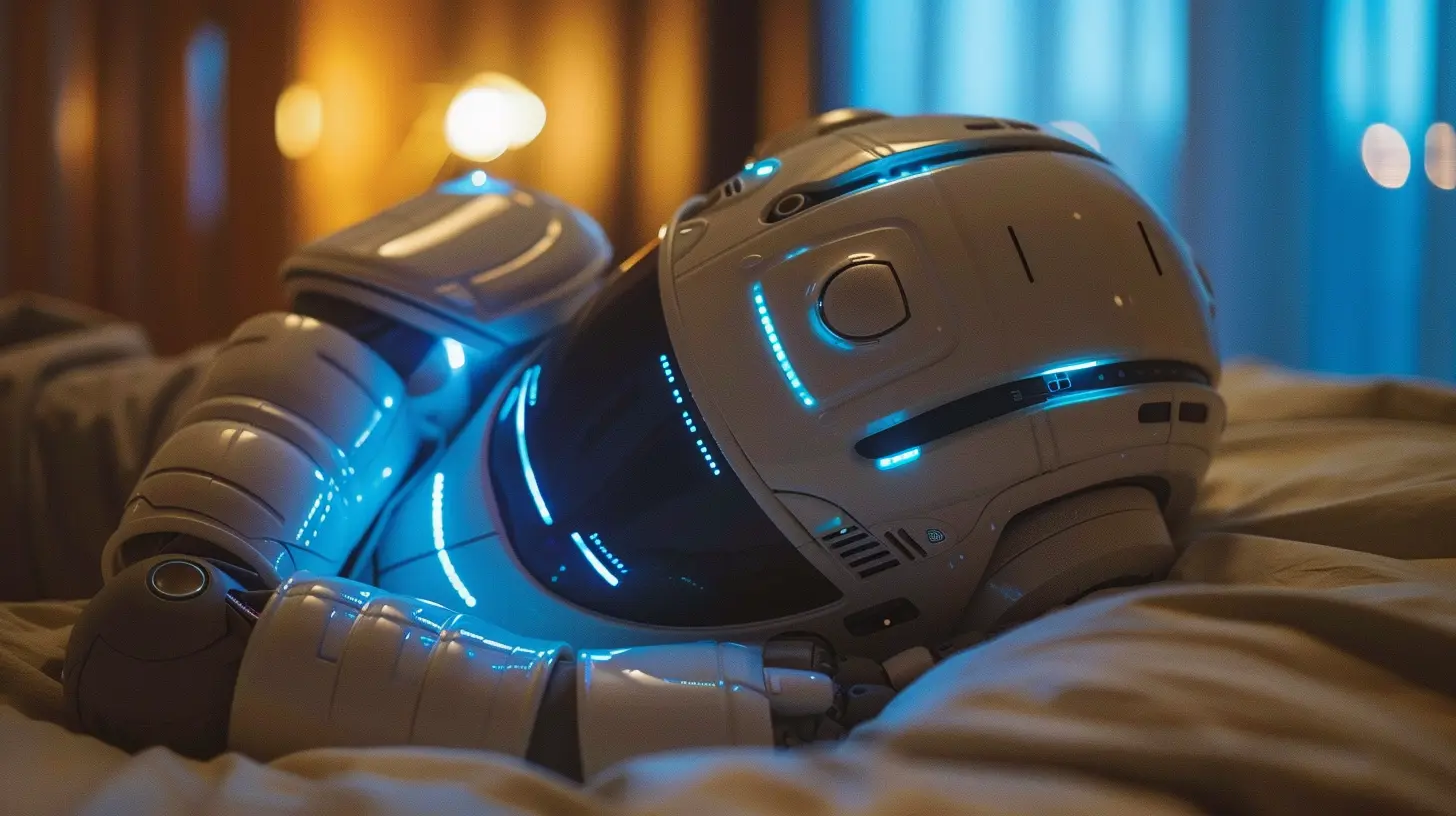
Table of Contents
1. Why Sleep is So Important2. How Digital Assistants Can Help You Sleep Better
3. Setting Up Your Sleep Routine with Digital Assistants
4. Using Sounds and Music to Improve Sleep
5. Integrating Smart Home Devices for Sleep Optimization
6. Using Sleep Tracking and Monitoring Features
7. Sleep-Focused Apps to Use with Digital Assistants
8. Final Thoughts

Why Sleep is So Important
Before we dive into the techy stuff, let's quickly touch on why sleep is such a big deal. You’ve probably heard this a thousand times, but sleep is not just about resting your body—it’s about resetting your brain, balancing emotions, and even improving your immune system. A lack of sleep can lead to all sorts of issues like mood swings, difficulty focusing, and even long-term health problems like heart disease and diabetes.So yeah, sleep is a big deal. And if there's a way we can use our digital tools to improve it, why wouldn’t we? Let's get into how digital assistants can help you catch those precious Zs.
How Digital Assistants Can Help You Sleep Better
Digital assistants are becoming smarter by the day, and their ability to assist in improving your sleep is no exception. They can help optimize your bedtime routine, create a calming environment, and even monitor your sleep patterns. Here are some key ways digital assistants can enhance your sleep:1. Bedtime Reminders: Your digital assistant can remind you when it’s time to start winding down for bed. This gentle nudge can be the first step toward establishing a consistent sleep schedule.
2. Sleep Environment Control: Connected to smart devices like lights, thermostats, and sound machines, digital assistants can create the ideal sleep environment.
3. Sleep Sounds & Music: They can play white noise, nature sounds, or calming music to help you drift off.
4. Sleep Tracking: Some digital assistants can integrate with sleep tracking apps to monitor your sleep patterns, so you can make adjustments if needed.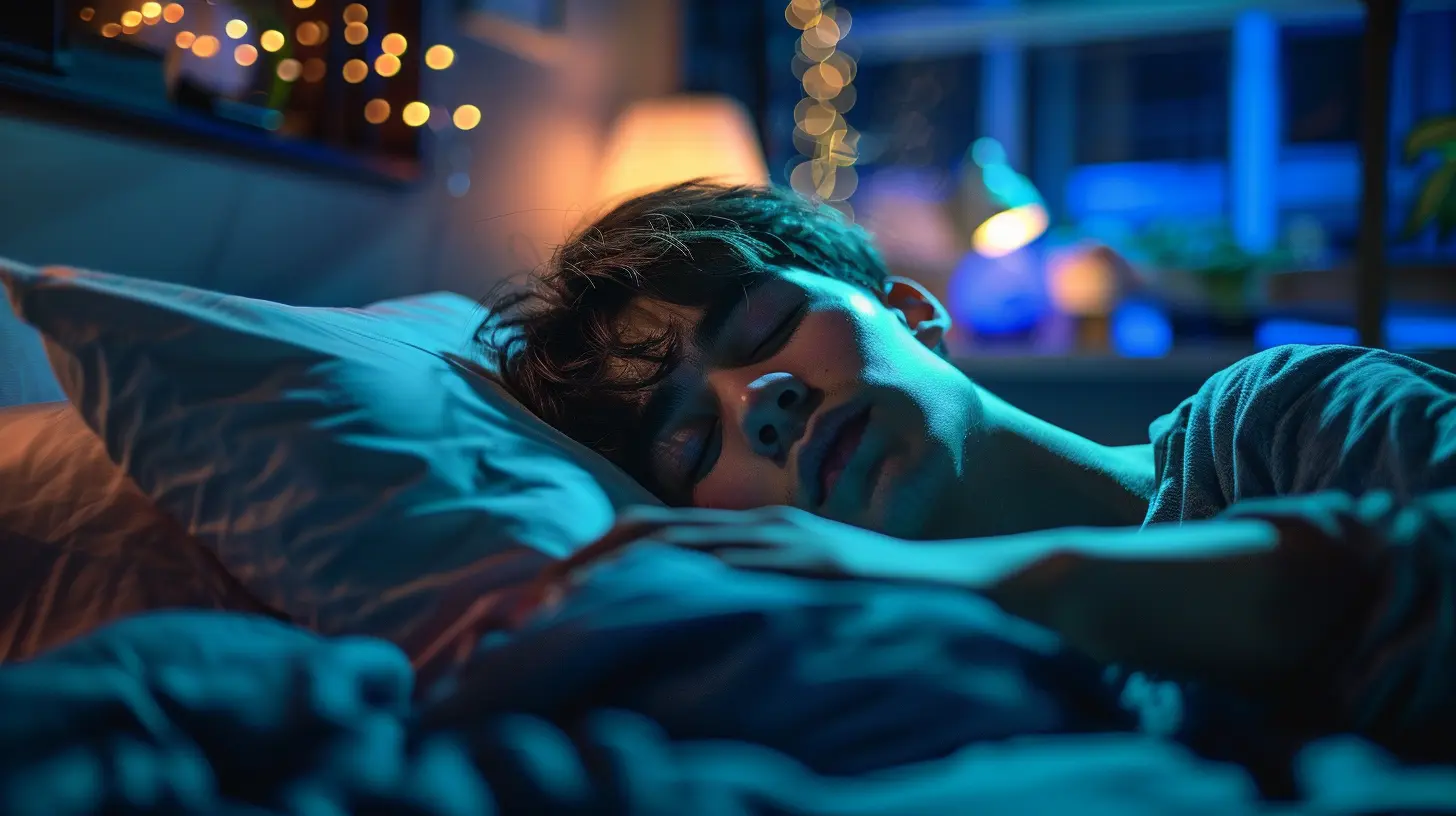
Setting Up Your Sleep Routine with Digital Assistants
One of the simplest but most effective ways a digital assistant can help improve your sleep is by establishing a solid bedtime routine. Our bodies thrive on routines, and having a consistent bedtime can help regulate your circadian rhythm (basically, your internal clock).Step 1: Set a Bedtime Reminder
Ask your digital assistant to remind you when it’s time to start winding down. For example, you can say, “Alexa, remind me to go to bed at 10:30 PM.” This will help you avoid the temptation of staying up too late binge-watching your favorite show on Netflix.Step 2: Create a Relaxation Routine
Your digital assistant can cue up a series of events to help you relax. For instance, you could say, “Hey Google, start my bedtime routine,” and it could dim the lights, play calming music, or even read you a bedtime story (yes, some assistants can do that!). You can customize the routine to suit your preferences, whether that’s turning on a white noise machine or lowering the temperature in your room.Step 3: Set a Wake-Up Alarm
Just as important as going to bed at the right time is waking up at a consistent time. Set a gentle wake-up alarm that gradually increases in volume. Many digital assistants can offer a "gentle" alarm feature, which wakes you up slowly, minimizing that harsh, jolting feeling of traditional alarms.Using Sounds and Music to Improve Sleep
Ever notice how a little bit of background noise can make falling asleep a whole lot easier? Whether it's the sound of rain, ocean waves, or soft classical music, your digital assistant can help.White Noise and Nature Sounds
Most digital assistants have built-in capabilities to play ambient noises like white noise, rain, or forest sounds. For example, you can say, “Alexa, play rain sounds,” and you’ll be instantly transported to a calming environment.Sleep Playlists
Many people find that playing soft, relaxing music can help them fall asleep faster. You can ask your assistant to play sleep playlists from Spotify, Apple Music, or other streaming services. Just say, “Hey Siri, play my sleep playlist,” and let the tunes lull you to dreamland.Timers for Sleep Sounds
Worried about your digital assistant playing sounds all night? No problem. You can set a timer to turn them off after a certain period. For example, “Alexa, play ocean sounds for 30 minutes,” and it will stop automatically after half an hour—just enough time to help you drift off.Integrating Smart Home Devices for Sleep Optimization
If you’ve got smart home devices, your digital assistant can take your sleep game to the next level. By controlling your environment, it can create the perfect conditions for a good night’s sleep.Smart Lights
Set your smart lights to dim gradually as bedtime approaches. This mimics the natural sunset, signaling to your body that it’s time to wind down. In the morning, you can program the lights to gradually brighten, helping you wake up more naturally.For example, you can say, “Hey Google, dim the bedroom lights to 20%,” or “Alexa, set the bedroom lights to night mode.”
Smart Thermostats
Temperature plays a huge role in sleep quality. Studies show that a cooler room (around 60-67°F) is optimal for sleep. Integrating your smart thermostat with your digital assistant can help you maintain the perfect temperature. You can say, “Hey Siri, lower the thermostat to 65 degrees,” and enjoy a cool, comfortable night.Smart Shades
If you have smart blinds or shades, your assistant can help block out unwanted light. You can schedule these shades to close when it’s time for bed or open in the morning to let in natural light, which can help regulate your sleep-wake cycle.Using Sleep Tracking and Monitoring Features
Getting insights into your sleep patterns can be a game-changer, and your digital assistant can help with that, too. While digital assistants themselves don’t usually track sleep, they can integrate with sleep tracking devices and apps like Fitbit, Apple Watch, or Google Fit.Sync with Sleep Trackers
Most sleep tracking apps can sync with your digital assistant, allowing you to ask questions like, “Hey Google, how did I sleep last night?” or “Alexa, ask Fitbit how many hours I slept.” These insights can help you make adjustments to your routine, such as going to bed earlier or tweaking your environment for better results.Smart Alarms
Some sleep tracking apps have smart alarms that wake you up during the lightest stage of your sleep cycle. Your digital assistant can trigger these alarms, ensuring you wake up feeling refreshed rather than groggy.Sleep-Focused Apps to Use with Digital Assistants
While your digital assistant has plenty of features built-in, there are also tons of sleep-focused apps that can take your sleep game to the next level. Here are a few worth trying:Calm
Calm offers guided meditations, sleep stories, and relaxing music, all of which can be voice-controlled through your digital assistant. Just say, “Hey Google, play Calm sleep meditation,” and you’ll be on your way to a peaceful night.Headspace
Similar to Calm, Headspace is focused on mindfulness and meditation. You can ask your digital assistant to play a Headspace sleepcast, which is designed to help you relax before bed.Sleep Cycle
This app tracks your sleep and wakes you up at the ideal time in your sleep cycle. You can sync Sleep Cycle with your assistant to get insights into your sleep quality and adjust your routine accordingly.Final Thoughts
Technology often gets a bad rap when it comes to sleep—after all, we’re constantly told that too much screen time can wreck our rest. But when used wisely, tools like digital assistants can actually enhance your sleep routine. From setting bedtime reminders to controlling your environment and even monitoring your sleep patterns, digital assistants can serve as valuable allies in your quest for better sleep.So, if you’ve been struggling to get the rest you need, why not give it a shot? With a few simple commands, you'll be well on your way to a more restful and rejuvenating night’s sleep.
all images in this post were generated using AI tools
Category:
Digital AssistantsAuthor:

Jerry Graham
Discussion
rate this article
16 comments
Korian Edwards
Great insights! Utilizing digital assistants for sleep improvement is a game changer. I particularly loved the tip about setting bedtime reminders and relaxing playlists. These simple tools can significantly enhance sleep quality. Looking forward to trying out these strategies!
February 21, 2025 at 3:37 AM

Jerry Graham
Thank you! I'm glad you found the tips helpful. Wishing you sweet dreams with your new strategies!
Ivan McNab
Integrating digital assistants into bedtime routines can enhance sleep quality through reminders, relaxation techniques, and environment optimization for better rest.
February 18, 2025 at 9:47 PM

Jerry Graham
Absolutely! Digital assistants can play a key role in establishing relaxing bedtime routines, helping to optimize your sleep environment and promote better rest.
Bryce Ortiz
This article effectively highlights the innovative ways digital assistants can enhance sleep quality. By integrating features like sleep tracking, ambient sounds, and bedtime reminders, users can create a personalized sleep environment. Emphasizing the importance of routine, it offers practical strategies for maximizing these technologies' potential benefits.
February 17, 2025 at 1:32 PM

Jerry Graham
Thank you for the insightful comment! I'm glad you found the article helpful in showcasing how digital assistants can enhance sleep quality through personalized features.
Daphne Thornton
Great article! Leveraging digital assistants for sleep optimization is a game-changer. The tips provided, from setting reminders to controlling ambient lighting, can truly enhance our nightly routines. Excited to try these strategies!
February 16, 2025 at 4:19 AM

Jerry Graham
Thank you! I’m glad you found the tips helpful. Enjoy optimizing your sleep with these strategies!
Solaria Luna
I’m fascinated by the idea of using digital assistants for sleep enhancement! What specific features or routines have proven most effective? I'm curious how technology can help us achieve better rest and overall well-being.
February 12, 2025 at 1:48 PM

Jerry Graham
Great question! Features like guided meditations, sleep sounds, and customizable bedtime routines are particularly effective. Setting reminders for wind-down time and using sleep tracking can also enhance overall rest and well-being.
Brittany McMillan
This article offers valuable insights into leveraging digital assistants for sleep improvement. By integrating features like reminders for bedtime and relaxation techniques, users can harness technology to foster healthier sleep habits. However, it's crucial to maintain a balance to avoid screen overload before sleep.
February 11, 2025 at 7:36 PM

Jerry Graham
Thank you for your feedback! I appreciate your emphasis on balance, as it's essential to use technology mindfully for better sleep.
Zinn Ross
Great tips! Sleep better with tech!
February 7, 2025 at 5:26 AM

Jerry Graham
Thank you! I'm glad you found the tips helpful. Sleep tech can make a big difference!
Raine Morris
Great article! It's comforting to see how technology can support our well-being. Utilizing digital assistants for better sleep is a smart approach. I appreciate the thoughtful tips you've shared; they can truly make a difference!
February 6, 2025 at 9:41 PM

Jerry Graham
Thank you for your kind words! I'm glad you found the tips helpful. Sleep is so important, and technology can be a great ally.
Malia Frank
Great insights! Digital assistants can truly enhance sleep quality.
February 6, 2025 at 5:11 AM

Jerry Graham
Thank you! I'm glad you found the insights helpful. Digital assistants can indeed play a key role in promoting better sleep!
Valen McMillen
Great insights! Embracing digital assistants for better sleep is such a smart idea. Can't wait to try these tips!
February 4, 2025 at 12:38 PM

Jerry Graham
Thank you! I'm glad you found the insights helpful. Enjoy trying out the tips for better sleep!
Enid Harris
Great article! Leveraging digital assistants for better sleep is a fantastic idea. Your tips are practical and easy to implement. It’s amazing how technology can enhance our well-being. Can't wait to try out these strategies for a more restful night!
February 4, 2025 at 5:58 AM

Jerry Graham
Thank you! I'm glad you found the tips helpful. Wishing you restful nights ahead!
Maddison Matthews
Unlock the power of technology for restful nights! Embrace digital assistants as your sleep allies, guiding you to better habits and peaceful slumber. Sweet dreams await—start your journey today!
February 2, 2025 at 8:32 PM

Jerry Graham
Thank you! Embracing digital assistants can indeed transform our sleep routines and enhance our well-being. Sweet dreams start with smart habits!
Cruz Sharp
Finally, a tech solution for my nighttime snack cravings!
February 2, 2025 at 1:21 PM

Jerry Graham
I'm glad you found it helpful! Digital assistants can really enhance our routines, even for nighttime cravings.
Vanessa Williams
Stop underestimating your digital assistant! Harness its power to track sleep patterns, set calming alarms, and create a personalized wind-down routine. Embrace technology—sleep better and wake up unstoppable!
February 1, 2025 at 9:09 PM

Jerry Graham
Thank you for highlighting the potential of digital assistants! Leveraging their features can indeed enhance our sleep quality and overall well-being.
Ramona Morrow
Great insights! Leveraging digital assistants to enhance sleep is a game-changer. Small adjustments can lead to significant improvements in our rest. Excited to try out these tips!
February 1, 2025 at 12:59 PM

Jerry Graham
Thank you! I'm glad you found the insights helpful. Wishing you restful nights ahead with these tips!
Harper Garcia
Great tips! I never knew my digital assistant could help with sleep—I’m excited to try these techniques tonight!
January 30, 2025 at 9:53 PM

Jerry Graham
I'm glad you found the tips helpful! Enjoy trying them out tonight!
MORE POSTS

The Role of Big Data in Shaping Digital Business Strategies
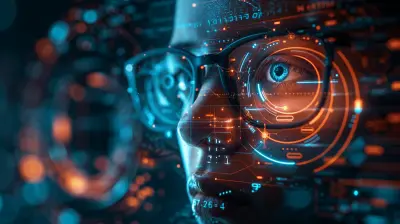
Smart TV Display Technologies: Breaking Down the Differences
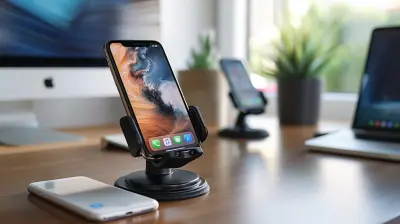
Must-Have Phone Holders for Every Situation
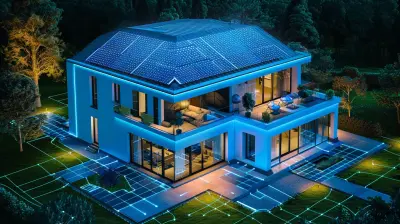
The Future of Smart Home Energy Management: Solar and Beyond
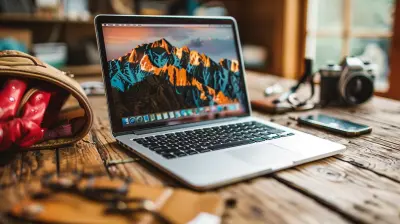
Gadgets That Help You Keep Track of Your Tech

How to Prevent Data Breaches in Cloud Computing
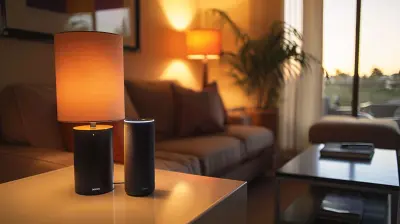
How Digital Assistants are Transforming Smart Home Experiences

Digital Transformation and Its Impact on Supply Chain Management

AI in Agriculture: Innovations in Precision Farming
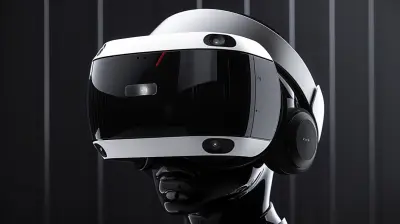
How VR Headsets are Pioneering the Future of Concerts and Events